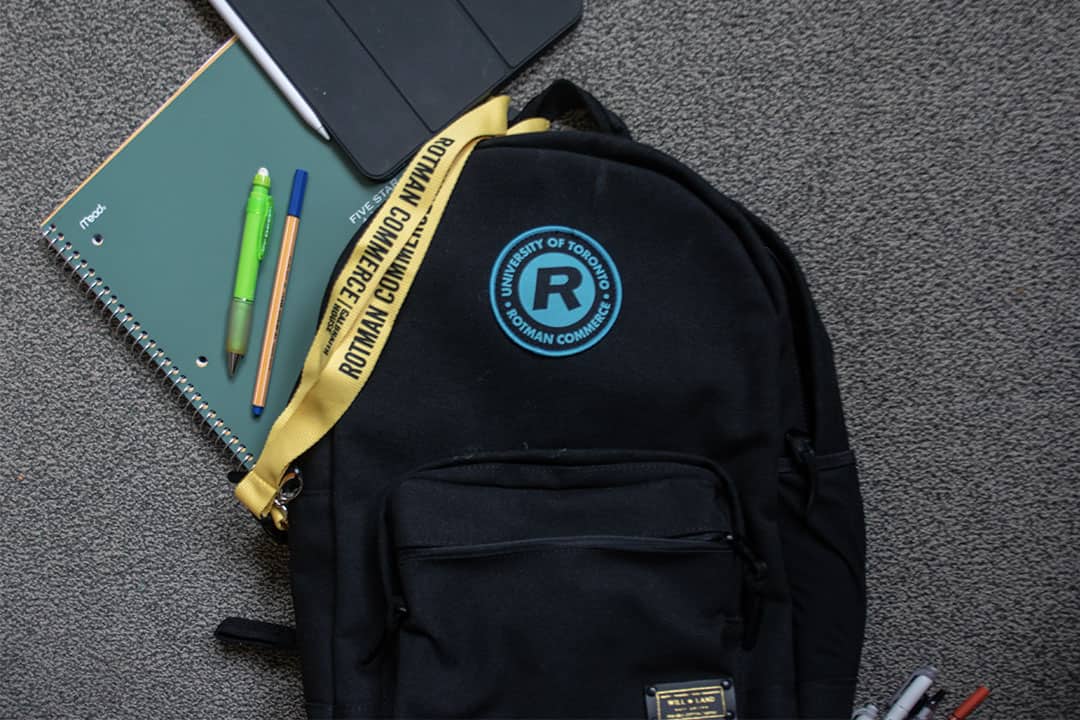Are you a first-year student tackling ECO101 and ECO102? Are you worried about meeting the cutoff for the Rotman Commerce program next year? I was in your position a year ago. While I faced several challenges along the way, I found them to be a rewarding experience. Here are some things that I have learnt along my journey.
How to take on RSM and ECO courses
The study strategies you used in high school may not work for RSM and ECO courses. For technical classes, like ECO102, I would recommend focusing heavily on problem sets and practice exams. You can also form a study group to work through challenging problems with classmates. Forming a Registered Study Group (RSG) can even earn you co-curricular credit.
I also found attending office hours to be helpful. Office hours get hectic before the midterm and final seasons, so be sure to stay on top of your work and ask your professor for clarification as confusion arises.
Ruihong Ni is a second-year student in the Rotman Commerce program. “Don’t slack off at the beginning of the semester,” said Ni in an interview with The Varsity. “It’s important to have a good foundation for more challenging material in later weeks.”
For non-technical courses such as RSM100, I relied on summarizing key points from each lecture. I would then review these key concepts often and practice explaining them to someone else. I found it especially useful to explain concepts to people outside of the course because I would need to explain content without using business terminology.
My biggest challenge, however, was learning that simply reading slides was not going to cut it due to the practical nature of both courses. Instead, I experimented with several study techniques, and by the time ECO102 came around, I had my studying strategy down to a science.
Start exploring potential career options early
Contrary to the popular belief held by Rotman Commerce (RC) students, there are more career opportunities available than working at a ‘Big Four Firm’ — Deloitte, Ernst & Young, KPMG, and PricewaterhouseCoopers — the four largest accounting firms by revenue. It is important to start exploring different industries early, so that when recruitment season comes around, you know which jobs you want to apply for.
I suggest challenging yourself to go to at least one recruitment event a month and ensure that you explore several types of industries. Be sure to read up on the company representatives and skim through key industry trends before attending each event.
In addition, try to set aside a regular time to update your resume. I suggest spending 20 minutes every week reviewing anything new you’ve accomplished, and adding that to your resume. This will allow you to be efficient when applying for jobs because you can focus on any other application materials. You can check out the Career Centre to assist you in developing your resume.
Pursue your interests, not just what everyone else is doing
Many Rotman students pursue careers in investment banking and consulting, but if these careers don’t seem as exciting to you, don’t force yourself into them. In RC, you’ll take many courses that could provide a window into future careers, so take this as an opportunity to try out various industries before signing a job offer.
Joining an RC student club can help you explore an industry and positively impact the Rotman community. Having experience as a club executive in an industry in which you are trying to land a job is especially helpful because it shows the firm your passion for the industry and helps your application stand out.
Finally, be sure to take advantage of case competitions open to university students. RC has a conferences and competitions subsidy that students can use to support their participation in competitions in Toronto and internationally. Case competitions occur throughout the year, so make sure to check out the RC portal as well as do your own research to find one that matches your interests.
Take breaks
Commerce is a challenging program, so it is important to ensure you maintain your work-life balance. Participating in activities on-campus or joining interest groups can help you broaden your horizons while in university.
Designating times where you will give yourself breaks from school work will help you keep perspective while pursuing your degree and leave you less likely to feel burnt out by the end of the semester. Overall, it is important that you take time to decide on the things you will participate in each semester to ensure you are not putting too much on your plate.


